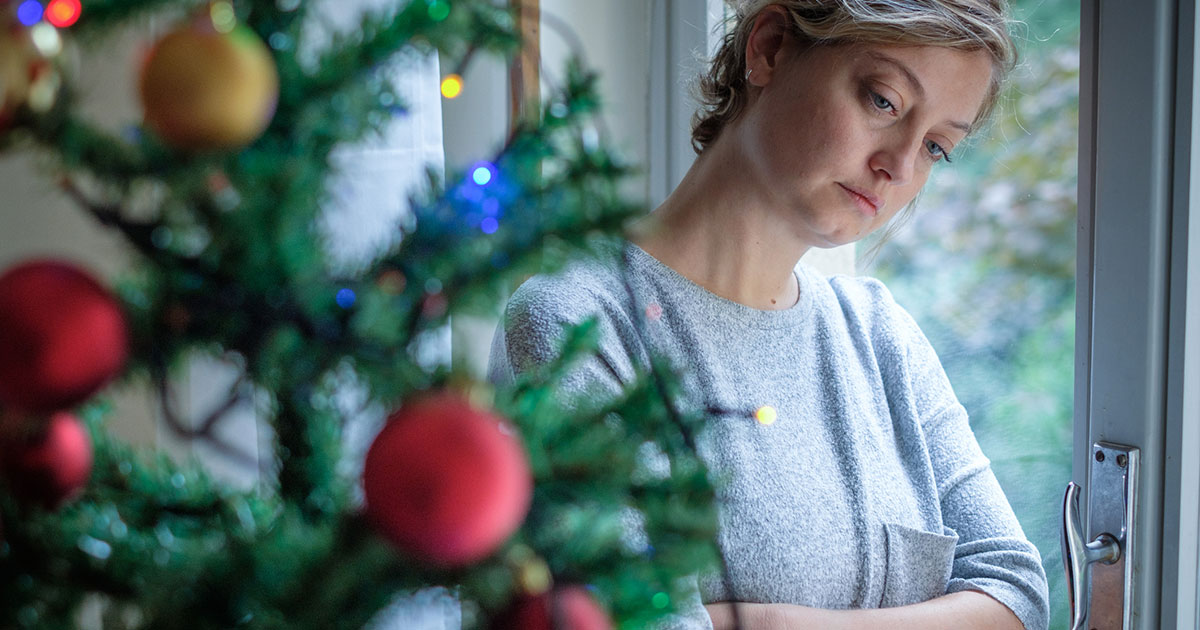
Dec. 6, 2023 – Winter Solstice is Dec. 21, 2023. In the Northern Hemisphere, it brings with it the shortest day and longest night of the year – both opportunities for reflection and celebration in many traditional cultures.
And while we can hear echoes of those older, comforting, and joyous traditions in contemporary holiday practices, the season can also feel burdensome and difficult.
This is especially true for people who suffer
seasonal affective disorder (SAD), a challenging but treatable set of depressive symptoms that recurs seasonally.1
Seasonal affective disorder can affect people living anywhere – but the Midwest appears especially vulnerable.
In a recent report of Google searches for “seasonal depression,” four Midwestern states appear in the top 10: Indiana (3); Michigan (5); Minnesota (7) and Illinois (10).
A recent study of prescription “fill rates” for medications commonly used to treat SAD confirm higher rates of medication therapy in Illinois, Iowa, and Ohio, as well as in in Montana, North Dakota, Kentucky, Virginia, Florida, and the Carolinas.
While not on the top 10 of that list, Wisconsin has a relatively high “SAD index” – a composite measure of cold days, dark days, foggy days, and rainy days from December through February.
In fact, according to the Wisconsin Department of Health Services (DHS)
Wisconsin Mental Health and Substance Use Needs Assessment 2019, the state’s rate of major depressive disorder is 7.5% among all adults over 18 and 13.99% among young adults aged 18-25 years old – one of the highest rates in the country. Wisconsin’s rates of suicide – often linked to depression – are almost always higher those of surrounding states, suggesting that much depression here remains untreated or ineffectively treated.
And according to the American Bar Association’s
Study on Lawyer Impairment, the rates of depression, anxiety, and alcoholism among lawyers and law students across the country exceed the national and state averages.
Being aware of variations on mood disorders proves important not only for personal wellness, but, for attorneys, for professional competence: depression can interfere with professional functioning by affecting energy, motivation, memory, attitude, and confidence.
Signs of SAD
So, what are the signs of SAD?
According to the National Institutes of Mental Health (NIMH), signs include:
disrupted or problematic sleeping and/or eating patterns;
near-constant, daily feelings of depression;
loss of interest in formerly enjoyable activities;
low motivation and energy; and
not uncommonly, thoughts of death or suicide.
There’s
good evidence that seasonal affective disorder is connected to changes in access to sunshine and shifts in melatonin and other hormones connected to our circadian rhythms, which affects sleep and, consequently, mood. The start of daylight savings time in early November
appears to contribute to this challenge.
But these aren’t the only variables that can contribute to drops in mood at this time of year. Others include sadness and grief around losses felt more poignantly over holidays; financial strains and self-judgment; alienation from family; and disruptions to healthy coping strategies, such as outdoor activities that are comfortable in summer but impossible in winter.
For some, expecting the seasonal dip can add anticipatory dread and precipitate the onset of an episode of SAD.
Treating SAD
The good news is that SAD is treatable with medication and other interventions.
Cognitive behavioral therapy (CBT) provided by a trained clinician can help sufferers work toward building greater capacity to assess negatively distorted thoughts and redirect one’s attention to achieve greater balance.
Light therapy – using an in-home full-spectrum light (rated as delivering 10,000 lux) first thing upon waking – has proven beneficial for countless sufferers.
Getting outside, no matter the weather, and finding alternatives to summer recreation that keep you moving indoors or out, are also beneficial to most of us.
One Way to Manage SAD: Connect with Others – Here’s How the State Bar Can Help
Unfortunately, for many of us, depression is a precursor to social isolation: energy and motivation drop, our sense of being welcome and a valued part of our communities plummets, and we turn down invitations to gatherings, meet-ups, and phone calls.
Ironically, however, supportive human contact is also part of the antidote for depression – both giving support to others, informally or as volunteers, and experiencing shared time with kind people who see us as valuable can help to shift one’s focus and interrupt depressive isolation.
This strategy for reducing SAD – connecting – is one with which the State Bar of Wisconsin can help. As a member of the State Bar, you are already a valued member of our community, and through many volunteer opportunities and educational events, the State Bar creates many possibilities for you to connect with other members of the profession and State Bar staff members. The State Bar needs you –
here’s where to find out more about getting involved.
As always, and in light of the challenges of this season, the State Bar’s
Wisconsin Lawyers Assistance Program (WisLAP) is there to help you.
First, WisLAP volunteers are there to support colleagues in need of some extra connection, perspective, and support this winter – and in the context of confidential conversation designed to reduce isolation, enhance well-being, and build community.
Second, WisLAP also needs volunteers to help their colleagues year-round.
Click here to learn how you can get more involved.
Whether you want to help or receive it (or both), you can find information
about WisLAP on the State Bar website, by emailing us at
callwislap@wisbar.org, or by calling us at 800-543-2625.
Endnotes
1 Formally, the experience is described in the
Diagnostic Manual of Mental Disorders (DSM-5), as “major depressive disorder with seasonal pattern.”
